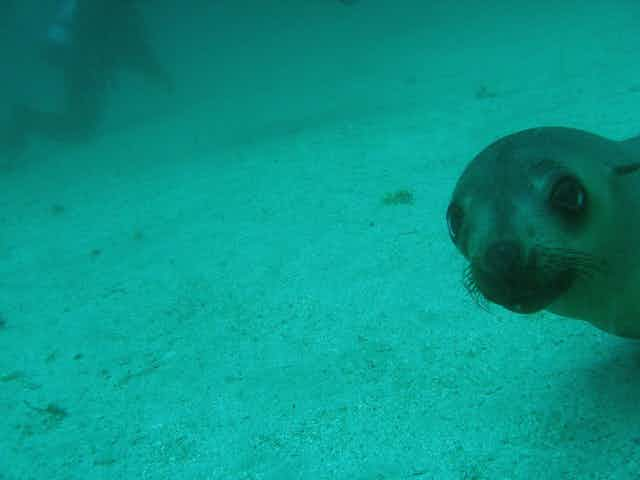The world’s oceans will see dramatic changes thanks to climate change, affecting hundreds of millions of people who depend on the sea according to research published today in the online journal PLOS Biology. It’s the first global forecast for the oceans under climate change.
Most of the world’s oceans will see declines in health, and experts warn south-east Australia is particularly vulnerable.
The study compared two climate scenarios up to 2100 - business as usual, and a scenario with moderate emissions cuts - analysing variables such as sea temperature, acidity, oxygen, and productivity.
Under both scenarios climate change will see increases in sea temperature and acidity, and decreases in oxygen and productivity, with knock-on effects on sea life.
A quarter of the CO2 emitted each year ends up in the oceans, a process that is making them more acidic. Meanwhile changes to ocean currents mean dissolved oxygen - vital for marine life - will decrease. This in turn affects productivity - calculated as growth of microscopic marine plants which other marine life depend on.
Whales, seals, squid and krill are the species most likely to be affected by these oceanic changes, while coral reefs, mangroves and sea grass are the most vulnerable ecosystems.
Some regions of the world - such as waters around Antarctica - will see increases in productivity, but this is offset by the overall negative trend.
The study found that over 800 million people in low-income nations will be exposed to changing oceans if nothing is done to mitigate CO2 emissions, because they depend on the sea for food, tourism, and jobs. People dependent on whales, coral reefs and fisheries will be particularly affected.
The new research comes from University of Hawaii’s Mora Lab, which last week published research on the timing of climate change.
“Cutting edge”
Professor Ove Hoegh-Guldberg from University of Queensland said the research is significant because it looks at a number of factors.
“The majority of climate studies have focused on one or two major variables. This study shows the importance of looking at the combined changes (and interactions) of multiple variables.
"Series of small changes in a number of key variables can add up to some really large changes in marine ecosystem structure. It’s like playing Russian roulette with multiple firearms.”
Dr Donna Roberts from the Antarctic Climate & Ecosystems Cooperative Research Centre at University of Tasmania agreed.
“The study is at the cutting edge of research, trying to take a worldwide look, rather than individual species or regions.”
Tasmania a hotspot
South-east Australia and Tasmania are hotspots - literally. Here, the combination of warming oceans and increasing acidity is likely to see dramatic changes to ocean food chains.
Dr Roberts explained:
“Krill and other species that make shells out of calcium carbonate are really in trouble, especially in polar regions. The largest changes are likely in areas of coral and rocky reefs, and also ecosystems dependent on krill.
"We’re likely to see a change from a krill-based ecosystem in the Southern Ocean with things like mussels, corals and oysters, towards a jellyfish-based, non-shell-making food chain.”
High impact, low income
But oceans and the people who need them aren’t just vulnerable to temperature and acidity, Dr Roberts said.
“On top of the four factors in the research we have sea level rise, overfishing, and many other variables.”
She said the effects of changing oceans will be felt most strongly on the people who can least afford it.
“It’s going to affect people who rely on seafood protein to live, and governments that rely on tourism. It’s a more significant economic problem than people think.”
Professor Hoegh-Guldberg said the only way to mitigate the effects of climate change on oceans is to cut CO2 emissions now.

